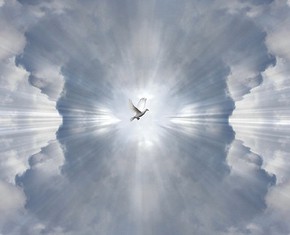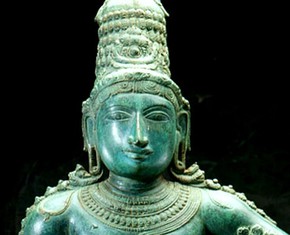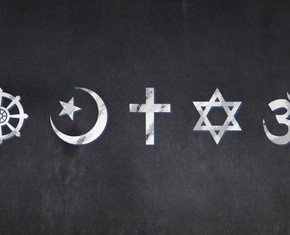The views expressed in our content reflect individual perspectives and do not represent the authoritative views of the Baha'i Faith.
What distinguishes a prophet of God from others?
In The Book of Certitude Baha’u’llah points out that, to outward seeming, the prophets are ordinary men. They eat, sleep, feel pain, and in general share with us all of the joys and sorrows of the human condition. These human characteristics, however, do not change the fact that their inner reality is altogether different from that of other human beings. Indeed, as Baha’u’llah points out, their humanness is itself a test for humanity, for only those with spiritual perception can understand and appreciate their words and acts.
It is also clear that the various prophets live within specific cultural contexts. They share a language with the people among whom they live, and they share in the cultural and religious milieu into which they are born. Their teachings are tailored to some extent to the beliefs and perceptions of their audience, but that is not to say that their own understanding is limited by this, nor that they remain within the confines of prevalent viewpoints. Rather, they always challenge contemporary attitudes, and for that reason they inevitably meet with rejection by the masses.
So what is it that separates the prophets from other teachers and philosophers? Baha’u’llah elucidates several differences that distinguish them from ordinary people.
As we have seen, the prophets manifest the attributes and qualities of God. Baha’u’llah makes clear that they do not achieve this station as the result of their own desire or effort. They are chosen by God, and the very nature of their souls is different from ours. They occupy a rank infinitely exalted above that of ordinary human beings. Infallible in word and deed, possessing divine knowledge, they act as channels of the Holy Spirit to humanity. Theirs is a station that no ordinary person can ever hope to attain. For these reasons their words and acts are considered to be the pure expression of God’s will:
Know thou that God – exalted and glorified be He – doth in no wise manifest His inmost Essence and Reality. From time immemorial He hath been veiled in the eternity of His Essence and concealed in the infinitude of His own Being. And when He purposed to manifest His beauty in the kingdom of names and to reveal His glory in the realm of attributes, He brought forth His Prophets from the invisible plane to the visible, that His name “the Manifest” might be distinguished from “the Hidden” and His name “the Last” might be discerned from “the First”, and that there may be fulfilled the words: “He is the First and the Last; the Seen and the Hidden; and He knoweth all things!” Thus hath He revealed these most excellent names and most exalted words in the Manifestations of His Self and the Mirrors of His Being. – Baha’u’llah, Gems of Divine Mysteries, p. 35.
These manifestations of God typically show evidence of high character and extraordinary knowledge, even from childhood. In the Gospel of Luke, Jesus’ parents, after a long search, find him engaged in conversation with elders in the Temple, who are astonished at the boy’s understanding of scripture. Muhammad was known as al-Amin, meaning “the Trusted One,” and when disputes arose he, even as a young and relatively poor man, was sought by the people because of his sense of justice. We have already seen some of the extraordinary qualities displayed by both the Bab and Baha’u’llah while still very young. Baha’u’llah indicated that he was aware of his own station from early childhood, although his ministry would not begin until much later in life.
















Comments
Sign in or create an account
Continue with Googleor